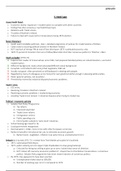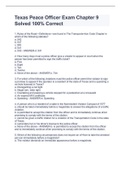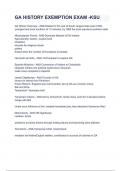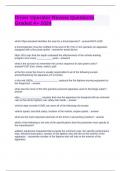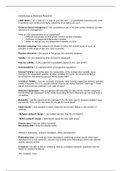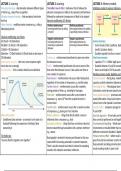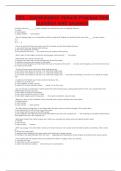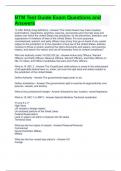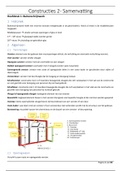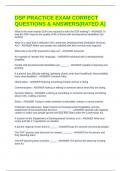Issues Heath faced:
o Economic vitality- expansion + modernisation to compete with other countries.
o Ending Post-War consensus- had held Britain back.
o Relations with Trade Unions.
o Troubles of Northern Ireland.
o Failure to deal with issues led to Conservatives losing 1974 election.
Rowe (Historian)
o Heath was formidable politician- clear + detailed programme of policies for modernisation of Britain.
o Came close to securing political solution in Northern Ireland.
o BUT- bad luck of timing- PM at end of Post-War boom 1973 + political/economic crisis.
o 1970-75 period of transition from era of Attlee/Macmillan Post-War consensus politics to Thatcher + Blair.
Heath as leader (1970-74)
☺ Experienced- leader of Conservatives since 1965- had prepared detailed policies on industrialisation + economic
modernisation.
☺ Different background- state school educated/different social background.
☺ Europhile- committed to EEC entry/chief negotiator 1961-63.
Socially not good- often perceived as stiff/awkward in dealing with people.
Regarded by many of colleagues as too honest for own good/not skilful enough in pleasing political allies.
Rowe ‘good at policies, not at politics’.
Premiership marred by industrial disputes/economic problems.
Heath’s aims:
o EEC entry.
o Resolving Troubles in Northern Ireland.
o Resolving economic problems + modernising economy.
o Avoiding Trade Union tension + industrial disputes when trying to modernise.
Political + economic policies
o Selsdon Park Policy Programme:
Tax reform.
Improved law/order.
Trade Union reform.
Immigration control.
Public spending cuts.
End of public subsidy to ‘lame duck’ industries.
o School leaving age raised to 16.
o Local government reorganised.
o Decimalisation = 100p- more in line with other European currencies.
o Barber (chancellor) introduced tax cuts to stimulate economic growth.
Barber boom- stagflation- inflation rose same time as unemployment (1m).
Setback 1: U-turned 1971-72 = retreat from Free Market principles he’d outlined.
o 1971- nationalised Rolls Royce.
o 1973- public subsidy put into Upper Clyde Shipbuilders to stop going bankrupt.
Criticised for being too willing to give up on aims- lacked clear sense of direction.
BUT- blown off course by economic problems? - stayed true to One Nation Conservatives + consensus
politics- Selsdon Park programme had never meant rejection of consensus politics.
o By 1973 crisis appeared to have been averted.
Unemployment fallen back to 500,000.
Number of working says cut in ½ compared to 1972.


